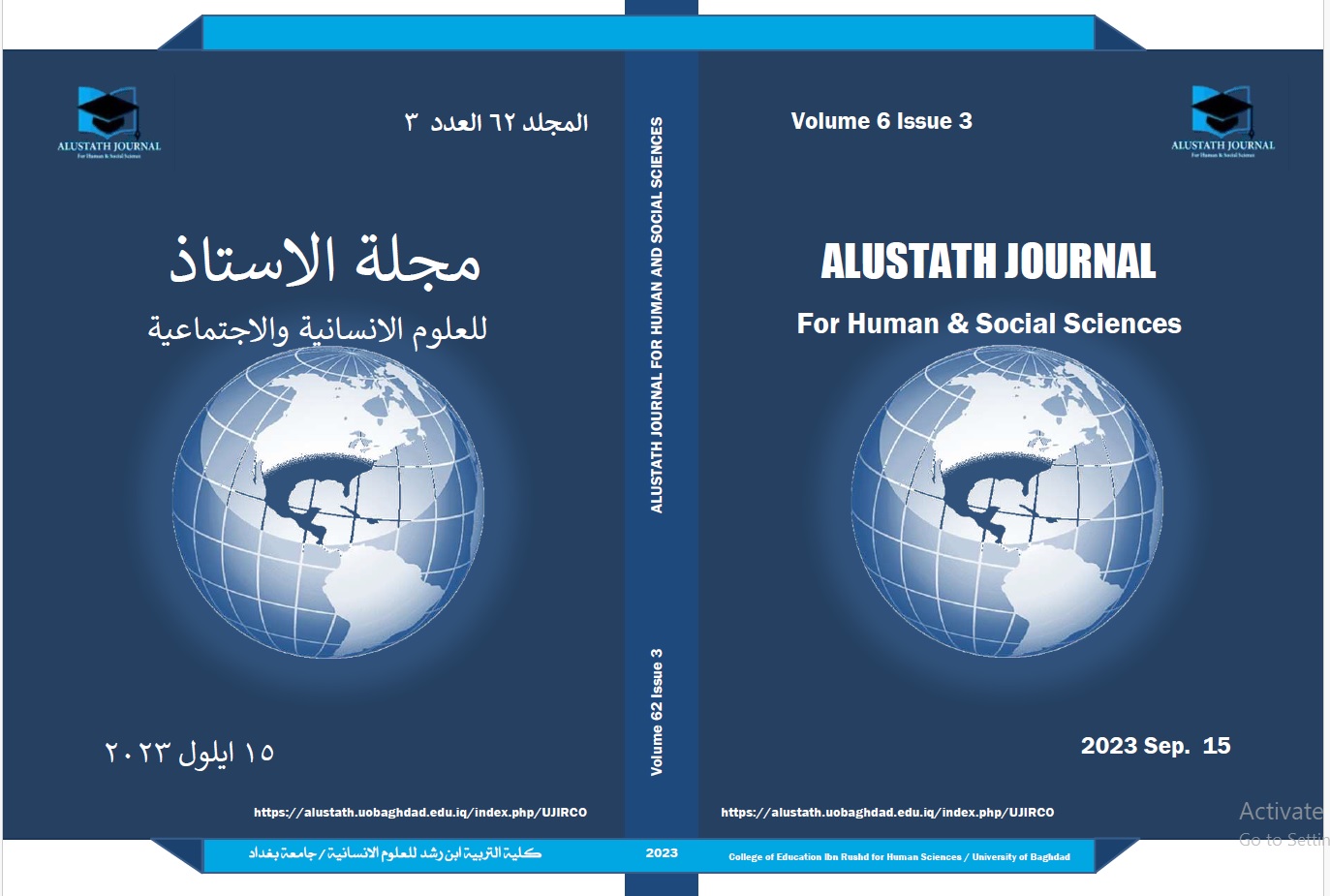Reflection of Spiritual Exercises in Sharif Razi's Poetry
DOI:
https://doi.org/10.36473/ujhss.v62i3.2204Keywords:
spiritual values, Sharif Razi, Quran, Emam AliAbstract
Undoubtedly, the existence of spiritual values in a society will lead to its growth and perfection, and the absence of such values and the replacement of negative traits in their place will be in opposition to the reformist movement of the prophets and will lead human societies to decline and decline. If spiritual values are ignored, not only material security, but also the possibility of spiritual behavior is lost and human perfection is endangered. This descriptive-analytical article seeks to examine these values. It is also intended to acquaint the audience with some of the thoughts of this great poet. It is worth mentioning that Sharif Razi in his poetry reflects these figures significantly and has been used practically in his life. The expression of these teachings shows that the poet himself has adhered to these values in practice and has called everyone. He has portrayed belief in Quran, belief in the intercession and salvation of the Imams, and the idea of death in his poetry. This article also shows that he has reflected many of the wise themes of that Imam, especially the immortality of this world and the immortality of the Hereafter in his poetry
Downloads
References
• Holy Quran
• Amadi Tamimi, Abd al-Wahed bin Muhammad (1987): Gharar al-Hakam wa Durr al-Kalam, Qom: Al-Tablaghat Office.
• Ibn Abi al-Hadid, Abd al-Hamid Ibn Hibat Allah (1959): Explanation of Nahj al-Balaghah, vol. 18, investigation: Muhammad Abu al-Fadl Ibrahim, Cairo: Dar Ihya al-Kutub al-Arabiyyah, Issa al-Babi al-Halabi and his associates, first edition.
• Ibn Al-Atheer, Ali Bin Muhammad (2006): Al-Kamil in History, vol. 7, Beirut: Dar Sader.
• Ibn Babawayh, Muhammad bin Ali (1982): Characteristics, Correction and Commentary: Ali Akbar Al-Ghafari, Qom: Publications of the Group of Teachers in the Scientific Hawza.
• Ibn Babawayh, Muhammad bin Ali (2008): The Eyes of the News of Al-Ridha, peace be upon him, Jahan Publications, Tehran, vol. 2.
• Ibn Babawayh, Muhammad bin Ali (2010): Meanings of news, translator: Hamidreza Sheikhi, Qom: Armaghan Tobi Publications.
• Abu Al-Atahiya (1997): Al-Diwan, Beirut, Dar Al-Kitab Al-Arabi.
• Al-Harrani, Abu Muhammad (2016): Masterpieces of Minds, Translator: Ahmad Jannati, Tehran: Amirkabir Publications.
• Khomeini, Ruhollah (2014): False Hadith (Forty Hadiths), Tehran: Publication of the works of Imam, Jab Nozdhem.
• Al-Rawandi, Qutbuddin (1987): Invitations: Translator: Muwahid Abtahi Isfahani, Qom: School of Imam Mahdi (may God be pleased with him).
• Sobhani, Jaafar (2004): Immortal Thought, vol. 9, Qom: Imam Sadiq Foundation (PBUH).
• Al-Sharif Al-Radi, Muhammad bin Hussein (1932): The Diwan of Al-Sharif Al-Radi, explained by Mustafa Al-Halawi, Beirut, Lebanon.
• Al-Sharif Al-Radi, Muhammad bin Hussain (2002): Nahj Al-Balaghah, translated by: Muhammad Dashti, Qom: Al-Hudhaur Publications Foundation.
• Al-Ghazali, Muhammad bin Muhammad (2010): The Revival of Religious Sciences, Part 12, Beirut: Dar Al-Kitab Al-Arabi.
• Al-Fakhoury, Hanna (2006): History of Arabic Literature (Modern Literature), Qom: Dhu Al-Qirbi Publications.
• Farroukh, Omar (1972): The History of Arabic Literature, Beirut: Dar Al-Ilm for Millions.
• Al-Kulaini, Muhammad ibn Yaqoub (2013): Usul Kafi, vol. 2, Translator: Muhammad Baqir Kamra, Qom: Al-Aswa Publications.
• Al-Muttaqi, Ali bin Hossam Al-Din (2009): Treasure of Workers, Beirut: Dar Revival of Arab Heritage.
• Al-Mutanabi (2004): Al-Diwan, explained by Al-Wahidi, Beirut: Dar Al-Kitab Al-Arabi. Third edition.
• Al-Majlisi, Muhammad Baqer (1982): Bihar al-Anwar, vol. 27, Beirut: Dara Revival of Arab Heritage.
• MohammadiRi Shahri, Muhammad and Farzanjan, Hasan (2012): The Balance of Wisdom, vol. 2, Translator: Hamidreza Sheikhi, Qom: Dar Al-Hadith Cultural Foundation.
• Noureddine, Hassan Jaafar (1990): Al-Sharif Al-Radi: His Life and Poetry, Beirut: Scientific Book House.












